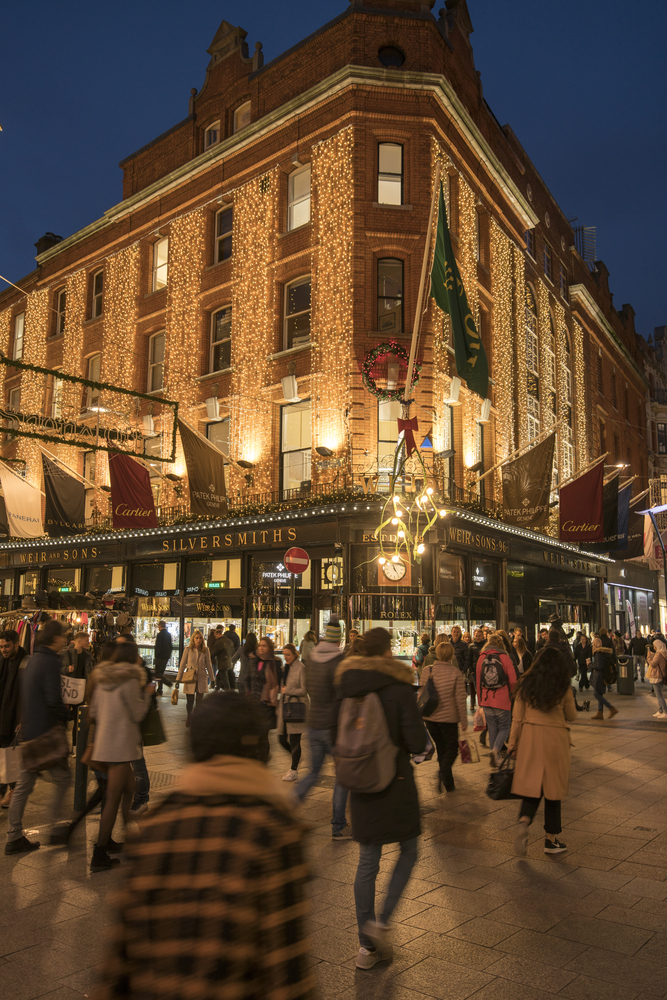With Black Friday well underway – in some cases retailers started on Monday of this week – a new piece of research from MediaCom shows that as many as 33% of Irish adults intend to make a Black Friday purchase, an increase on the 24% who did so last year. This figure skews in favour of females aged between 16-34, according to MediaCom.
Some 23% of Irish people consider Black Friday an important day on the shopping calendar.
Consumers in Connacht / Ulster and Leinster (excl. Dublin) are most likely to find it important at 26% and 29% respectively. In 2016 we saw the importance of Black Friday skewed towards females, but it is now an even gender split.
One of the biggest criticisms of Black Friday, and indeed sales more broadly, is that consumers are often left feeling duped into buying something they wouldn’t ordinarily have bought. However, the research shows that this isn’t the case for Irish consumers.

Of the 24% of Irish consumers who made a purchase on Black Friday, 71% agreed they were delighted with what they bought, with only 5% claiming to be disappointed. However, 47% of those who bought something during a Black Friday promotion felt they would have made those purchases anyway without the discounts, meaning not all retailers necessarily need to jump on to the trend. 68% of Irish adults feel the event is a gimmick.
The research also found that men are most likely to be the last minute festive shoppers and that Black Friday has a positive impact on Christmas shopping costs, with 33% of those who purchased something on Black Friday agreeing that the day makes it easier to afford particular gifts before Christmas.
The research noted that that majority of shoppers (56%) begin buying gifts at least 2-3 months before Christmas, with women more likely than men to start shopping early. We also found that women are significantly more organised than men when purchasing Christmas gifts; with 31% leaving shopping until December compared to almost two thirds (40%) of men. Men are also more likely to leave Christmas shopping until the last minute rush, with 13% starting their shopping the week before Christmas compared to 5% of females.
Less than a third (27%) of Irish consumers have a set budget for Christmas 2017 – a fact likely to ring happily in the ears of retailers across the country. In 2016, 32% of Irish consumers had set a budget. In 2017, women are more likely to budget (31% v 22% of men) and 35-54s (29%) and 55+ (27%) are also more likely than younger consumers.
On average, people are planning to spend less on gifts than in 2016 (€456 v €493 in 2016). Just under half (49%) plan to spend on home furnishings with an average planned expenditure of €142 compared to €129 in 2016.
Some 61% of consumers’ Christmas shopping is done in traditional bricks and mortar stores, down slightly on 2016 (64%). Around 20% is done via international or internet-only retailer (Asos, Littlewoods, Amazon etc) (vs 19% in 2016), while 15% on a store’s website (no change on 2016) and 4% on an app (+2pp on 2016). While still small, the fact that the percentage of spend on apps has doubled and is an important watch-out for ecommerce brands.
The report concludes that 8 in 10 Irish people have given a voucher as a Christmas present and two thirds have given cash (rising to 80% of 55+) while 3% of 16-34s have sold an unwanted Christmas present online, compared to an average of 19%. 45% of Irish people have regifted a Christmas present, highest amongst women aged 35-54 (50%).
According to Ian McGrath, managing director of MediaCom Ireland: “I don’t believe Black Friday will reach the same heights in Ireland as it did in other markets. The reason for this is that the retailers and brands have extended the discounting period pre-Christmas now to maximise volume in this key selling period.”






















